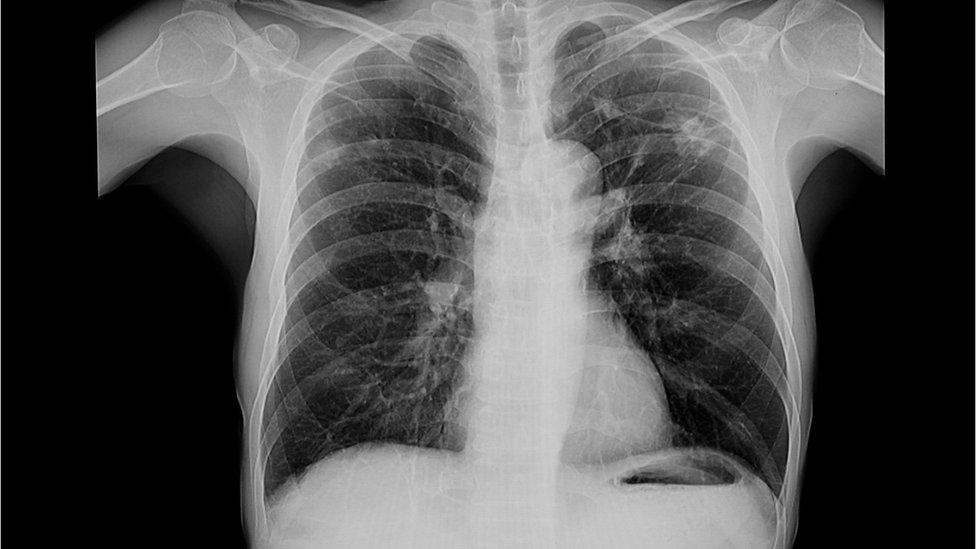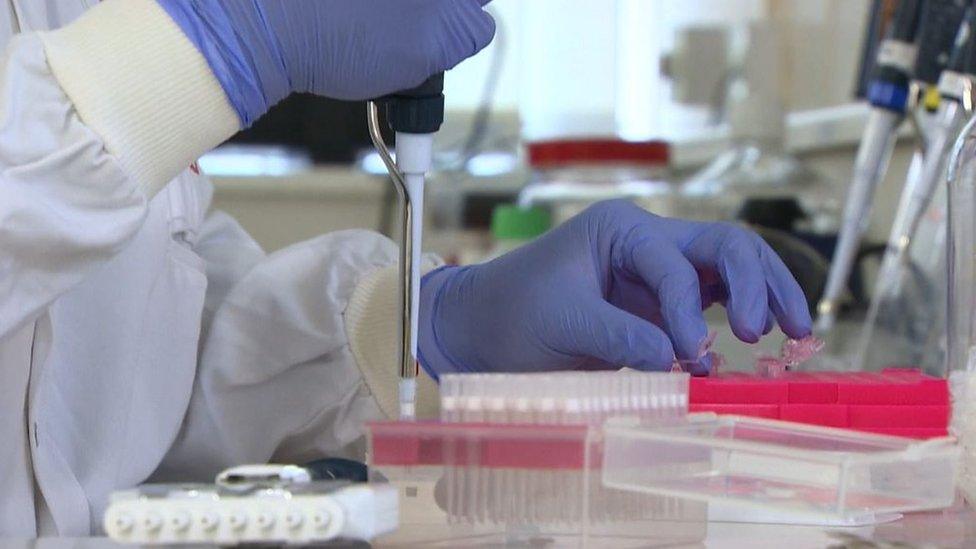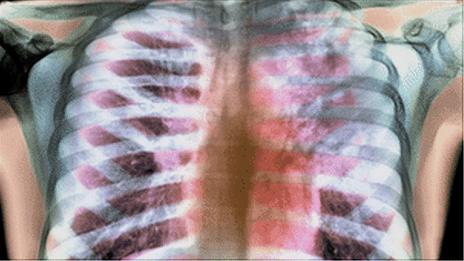Persistent cough may be tuberculosis not Covid, doctor warns
- Published

The UK's top public health doctor says anyone with a persistent cough and fever should not dismiss it as Covid - and should consider other infectious illnesses like tuberculosis (TB).
Dr Jenny Harries' warning comes as provisional data shows there were 4,430 cases, external recorded in England in 2021, despite sharp declines in recent years.
Charities are calling for more funding to tackle the disease around the world.
They say the pandemic and conflicts have set back progress worldwide.
In 2020, global deaths because of tuberculosis ranked second to Covid for any infectious disease.
'Undetected cases'
The charity Stop TB Partnership warns the war in Ukraine could have "devastating impacts on health services", including the country's strong national TB treatment programme.
In 2021, Ukraine treated 24,000 people with TB including 5,000 with a drug-resistant form of the illness.
The country is among one of the 30 countries with highest rates of drug-resistant cases in the world.
The charity is urging all countries to put facilities in place urgently so refugees can be given the care they need.
In the UK a requirement for Ukrainians to take a TB test before arrival has been waived, external for those who are coming to the country on the family scheme visa.
Refugees arriving on the scheme will get medical care and testing via GPs., external
Meanwhile Dr Jenny Harries, chief executive of the UK Health Security Agency, said delayed diagnosis and treatment, particularly during the pandemic, will have increased the number of undetected cases in England.
She added: "It is important to remember not every persistent cough, along with fever, is Covid-19.
"A cough that usually has mucus and lasts longer than three weeks can be caused by a range of other issues, including tuberculosis."
Provisional UKHSA figures show:
There were 4,430 cases of TB recorded in England in 2021
This compares to 4,125 in 2020 - but it is likely there were unrecorded cases during the pandemic
There were 4,725 cases in 2019 after years of decline
In 2011, cases peaked at 8,280
Though sometimes life-threatening, the vast majority of TB cases can be treated successfully with six months of antibiotics.
But incomplete or inadequate treatment can lead to the development of drug resistance - meaning the bug can no longer be killed effectively by one or more medicines. Other combinations of drugs are then tried.
Drug-resistant TB is a particular problem - with 11.6% of cases in England in 2020 recorded as resistant to any drug and 2.4% resistant to both of the most frequently-used antibiotics.
- Published29 July 2020

- Published23 March 2012

- Published9 March 2022
